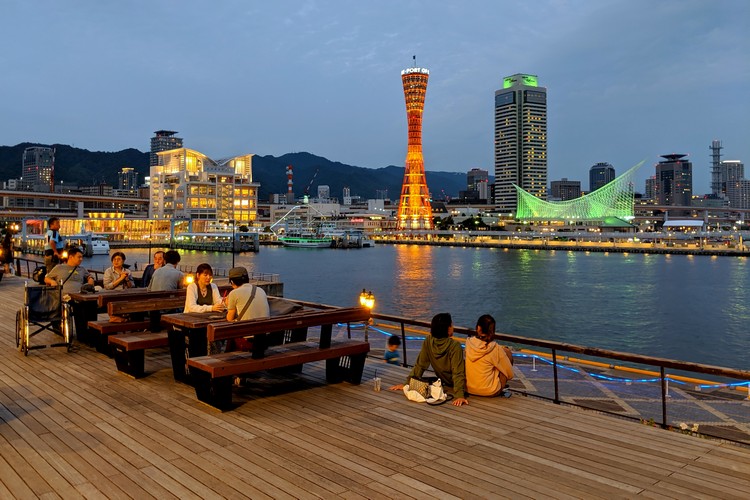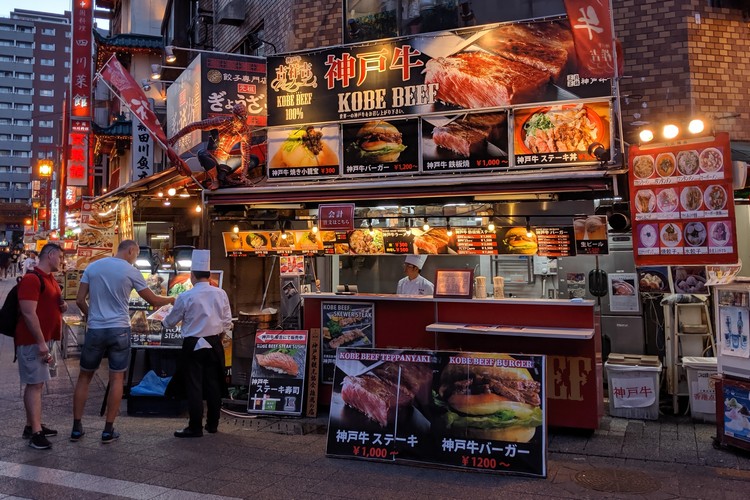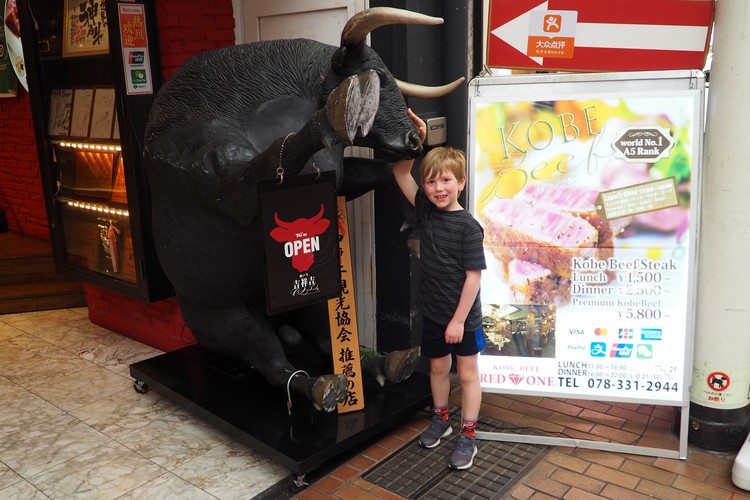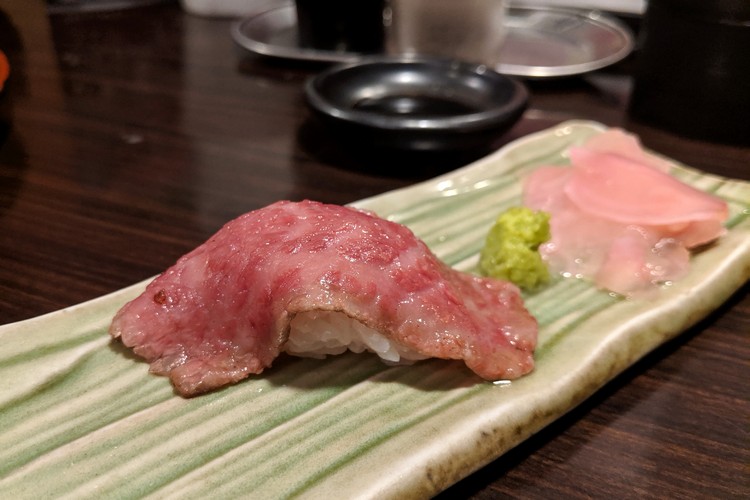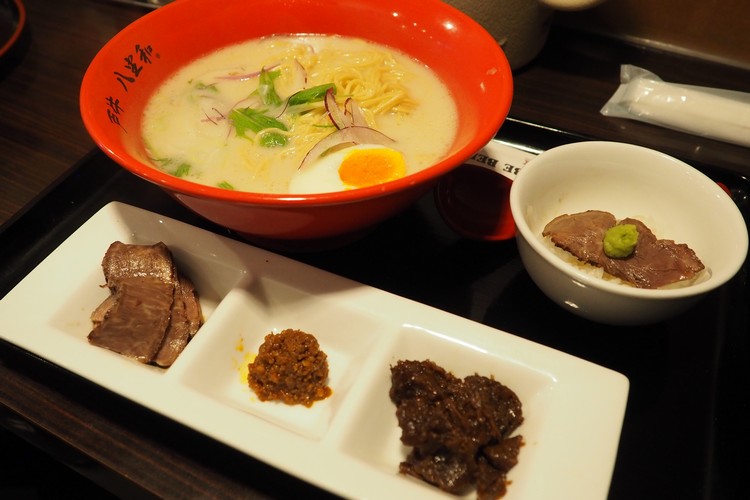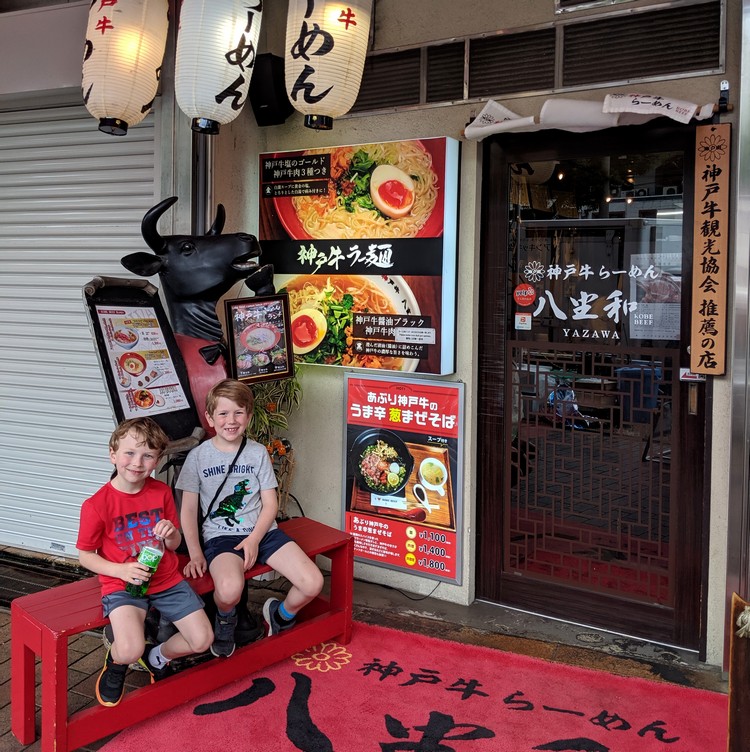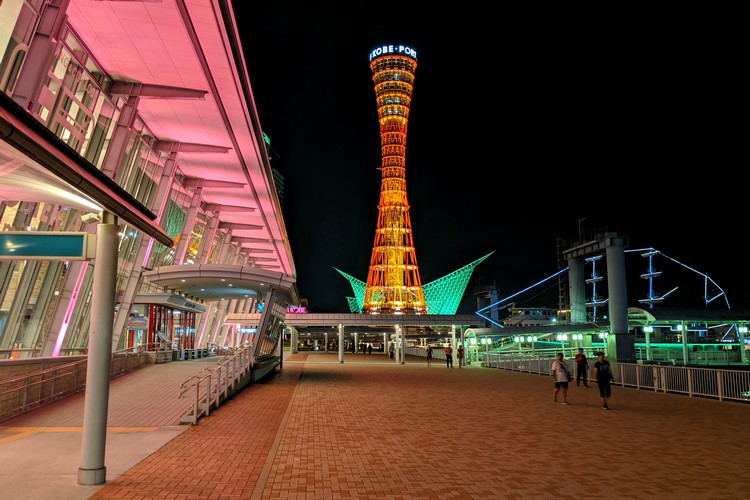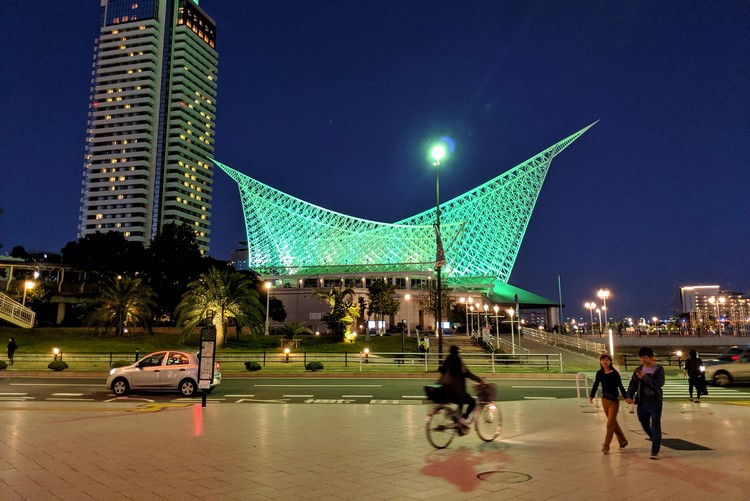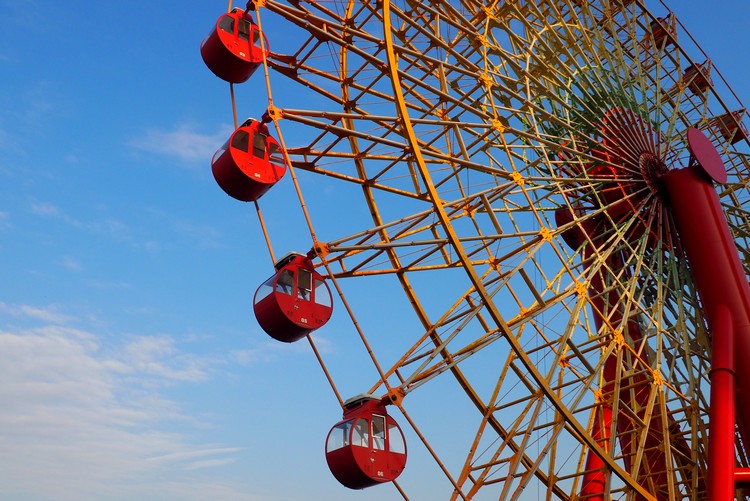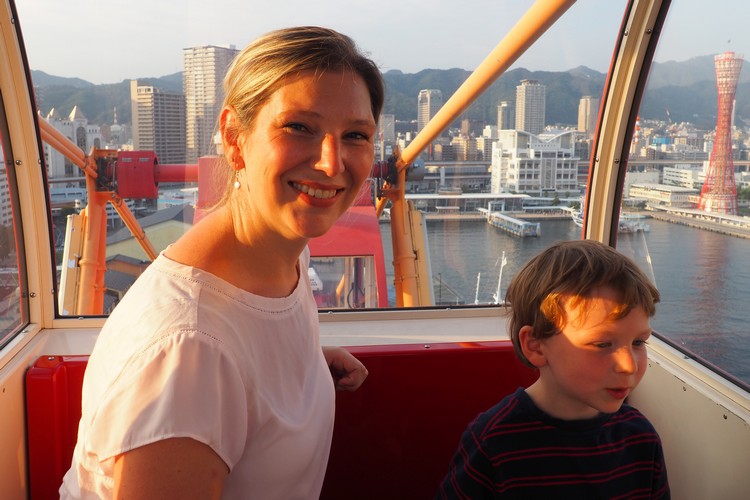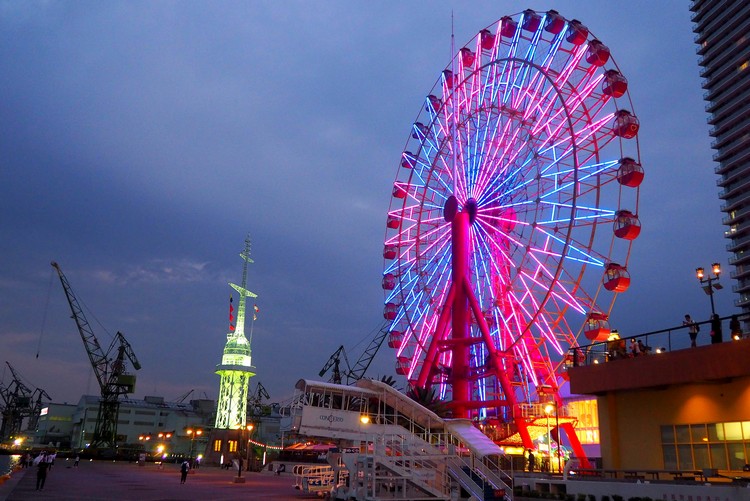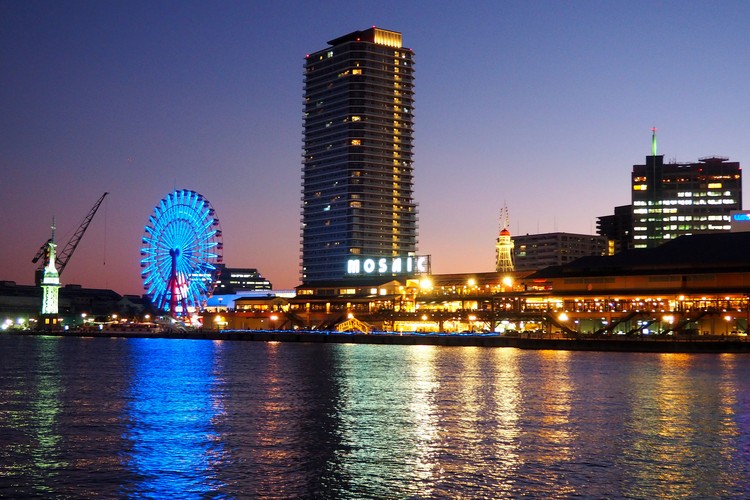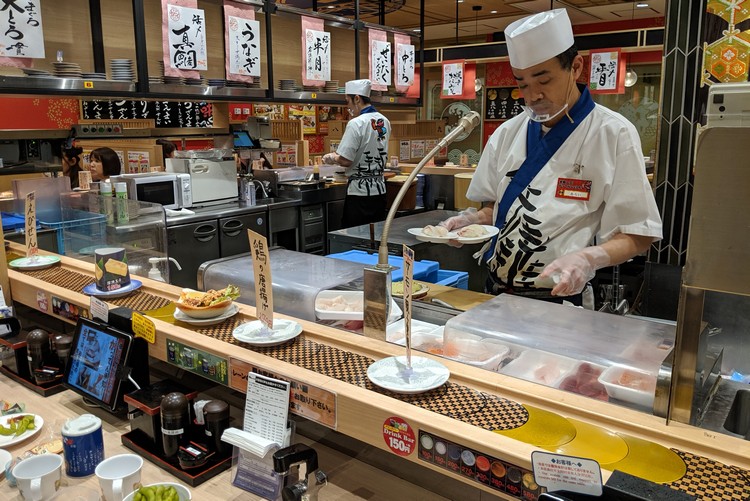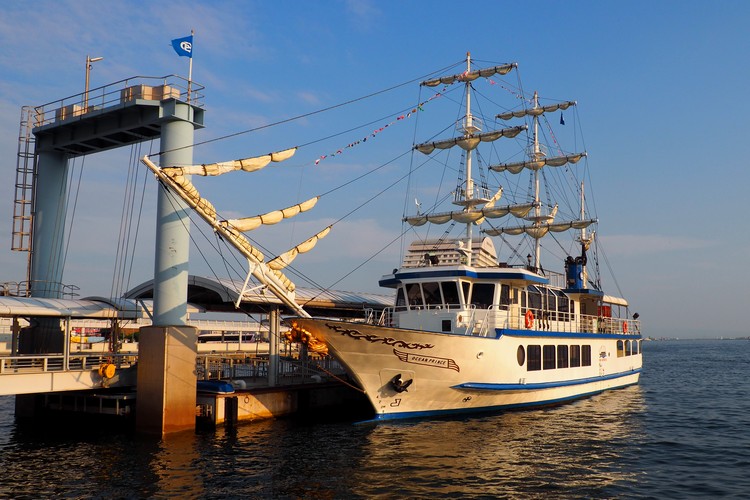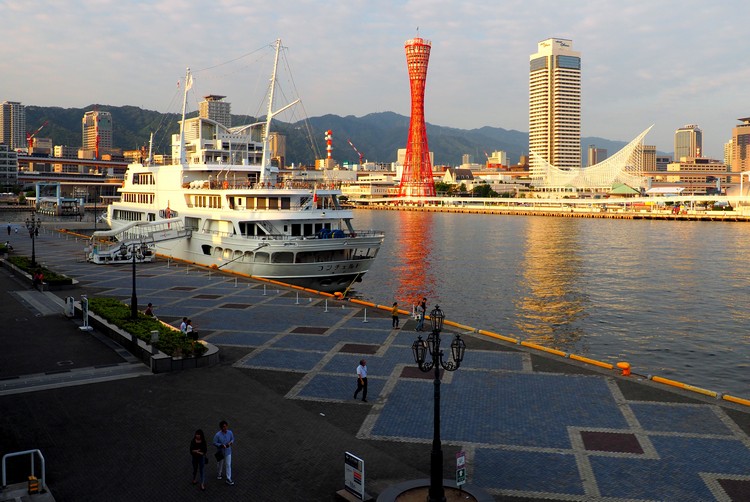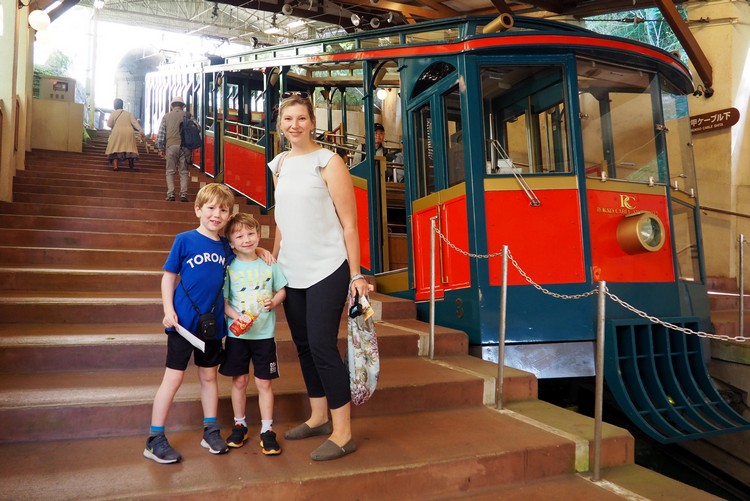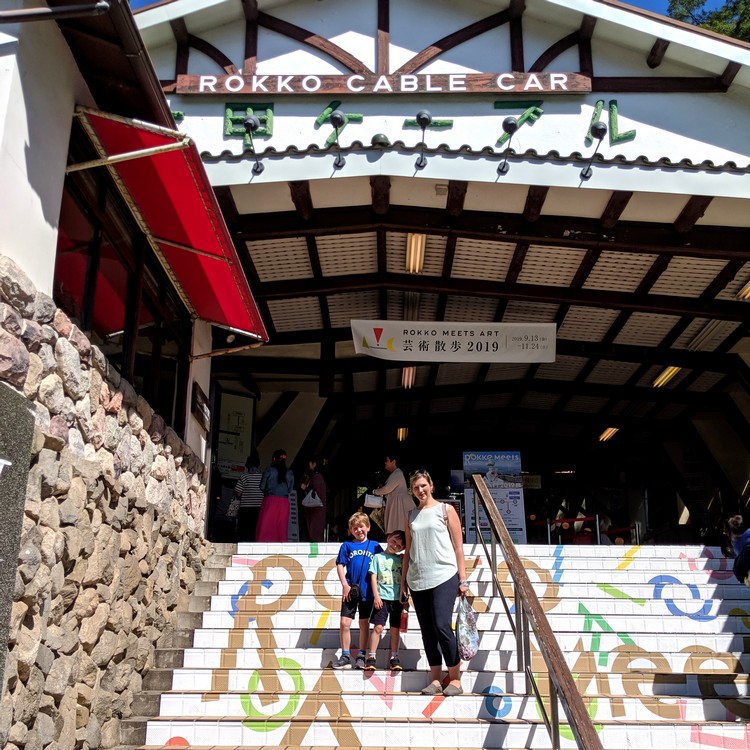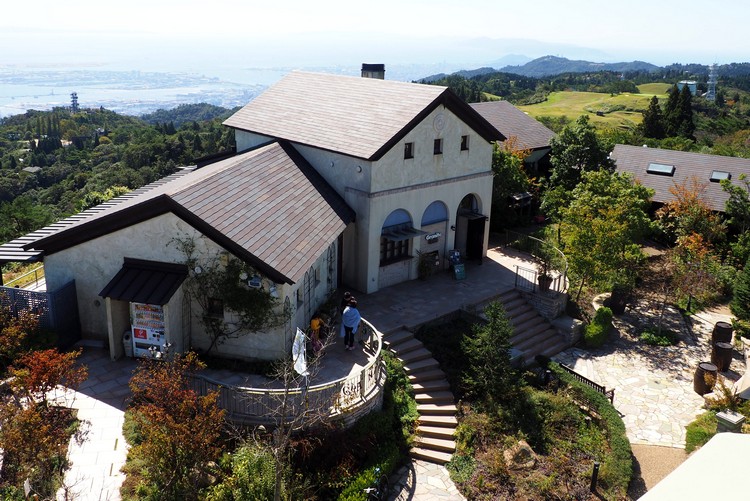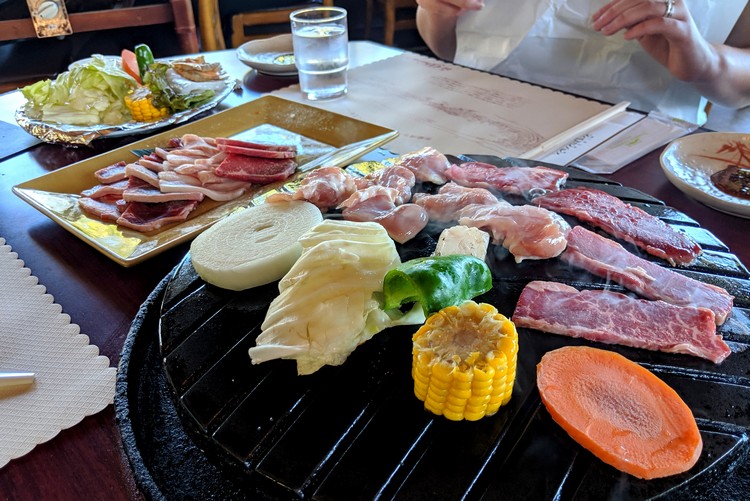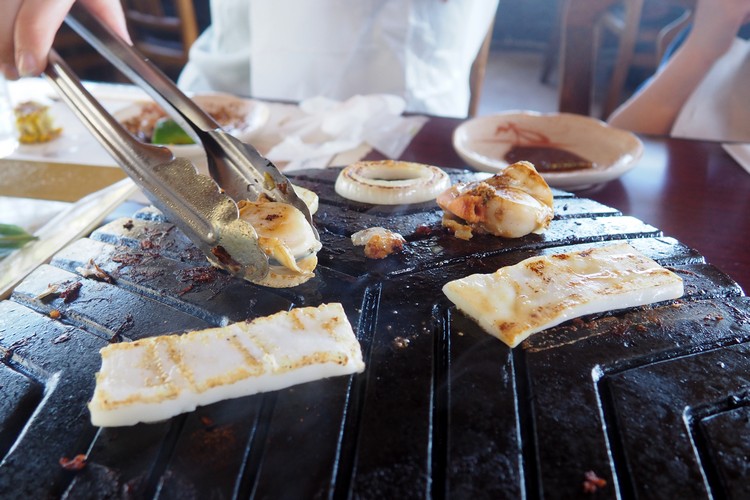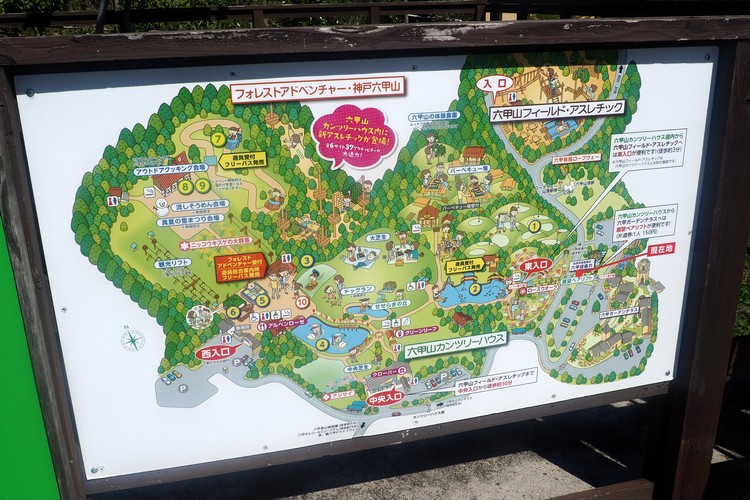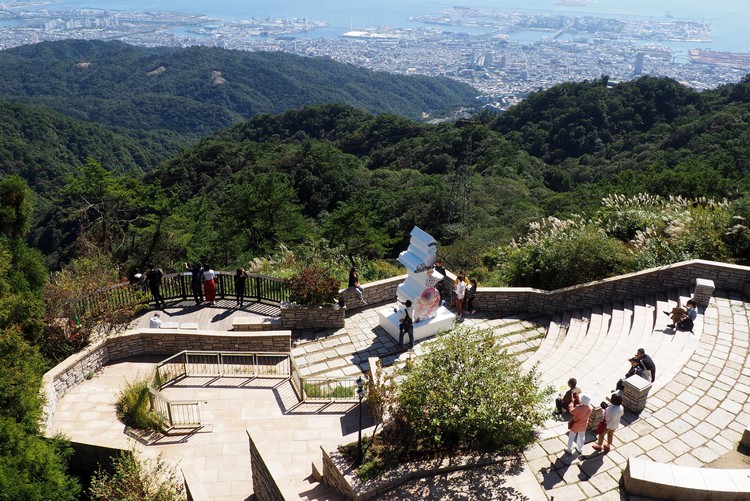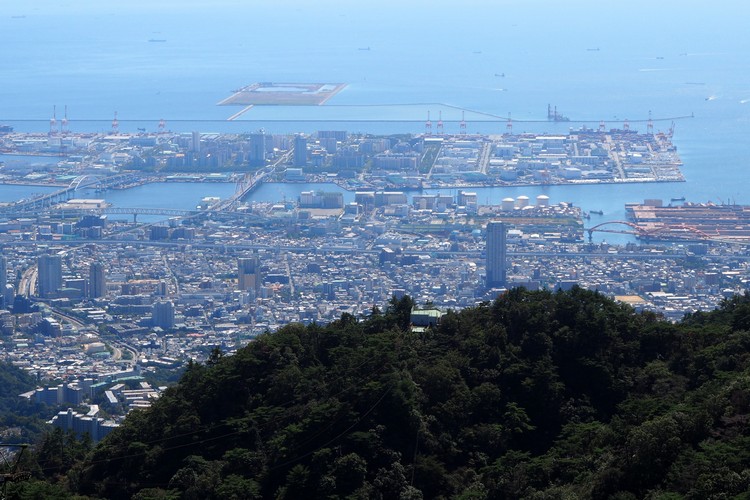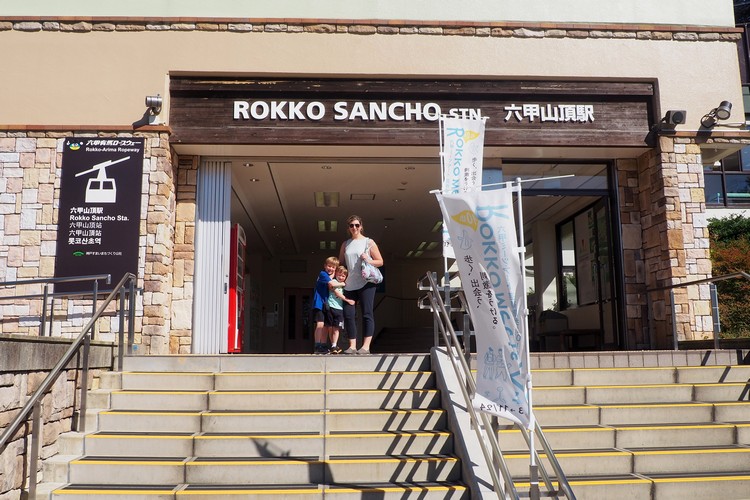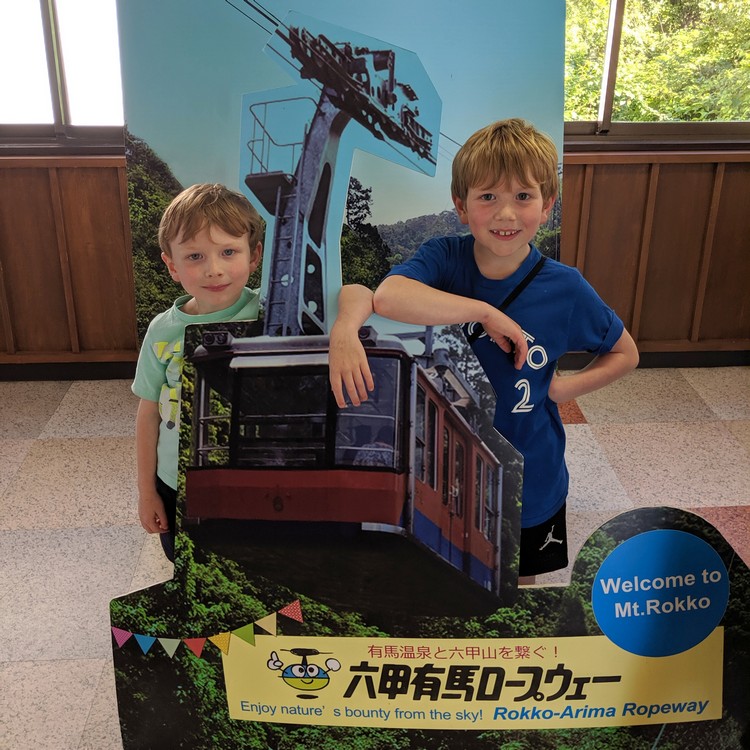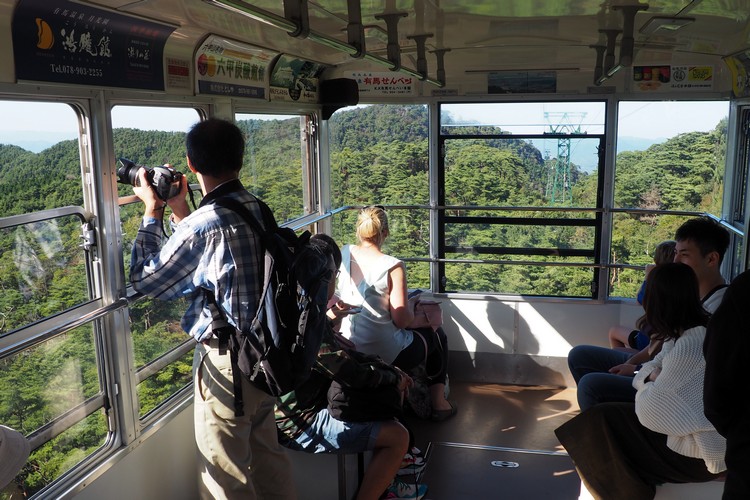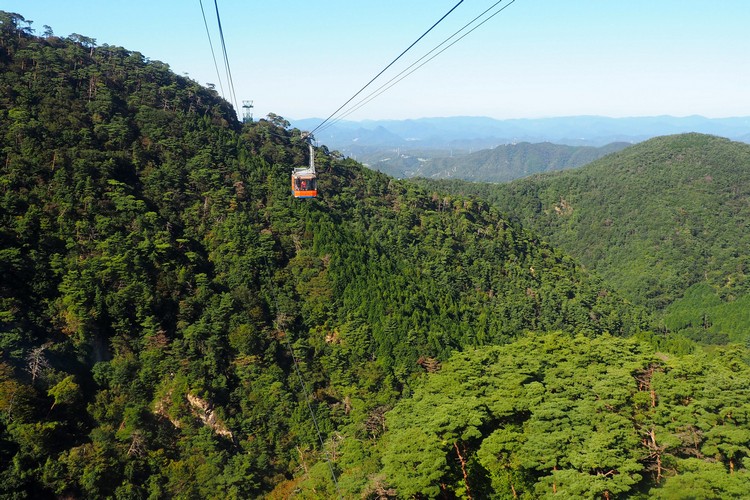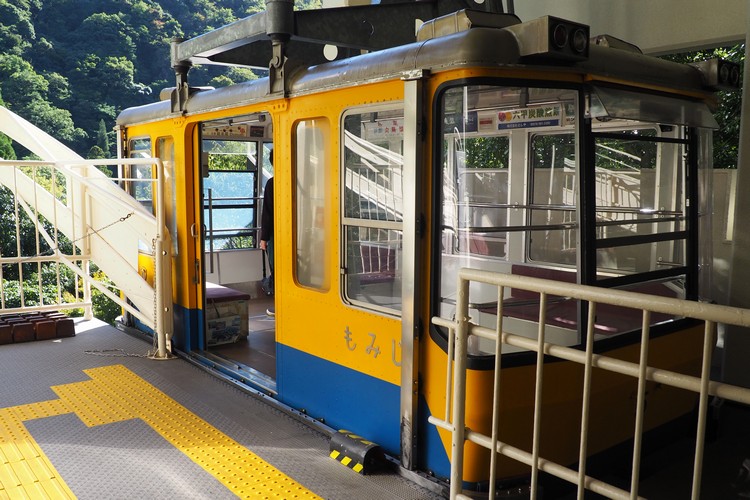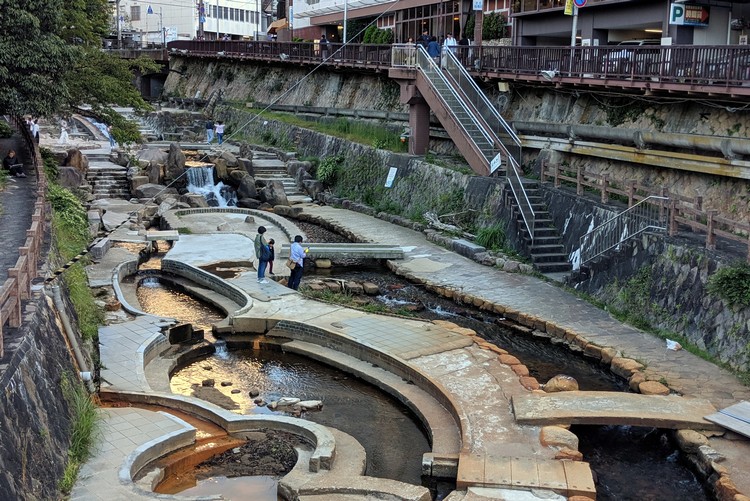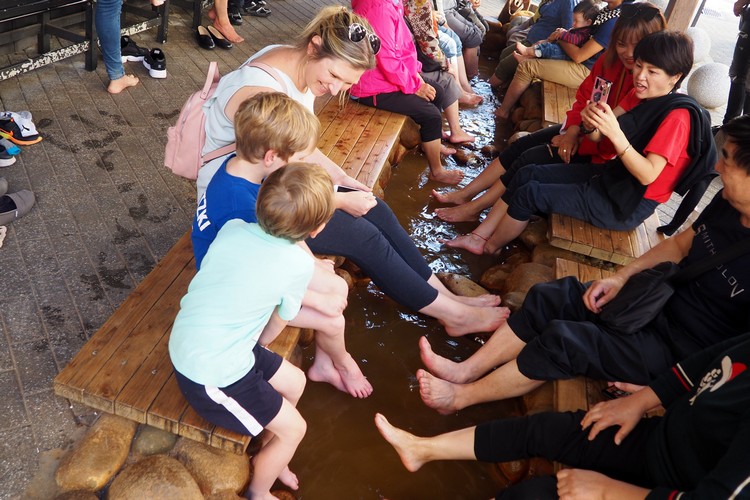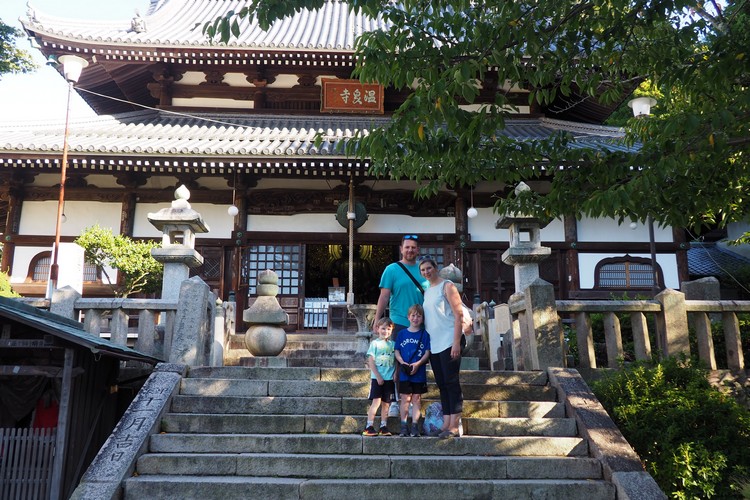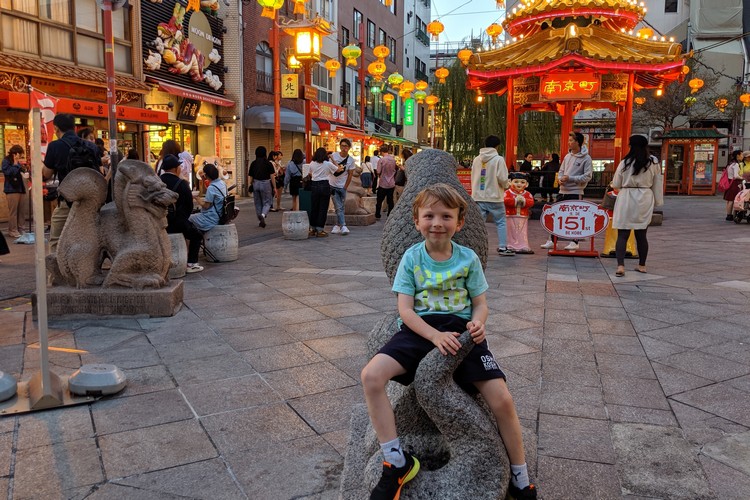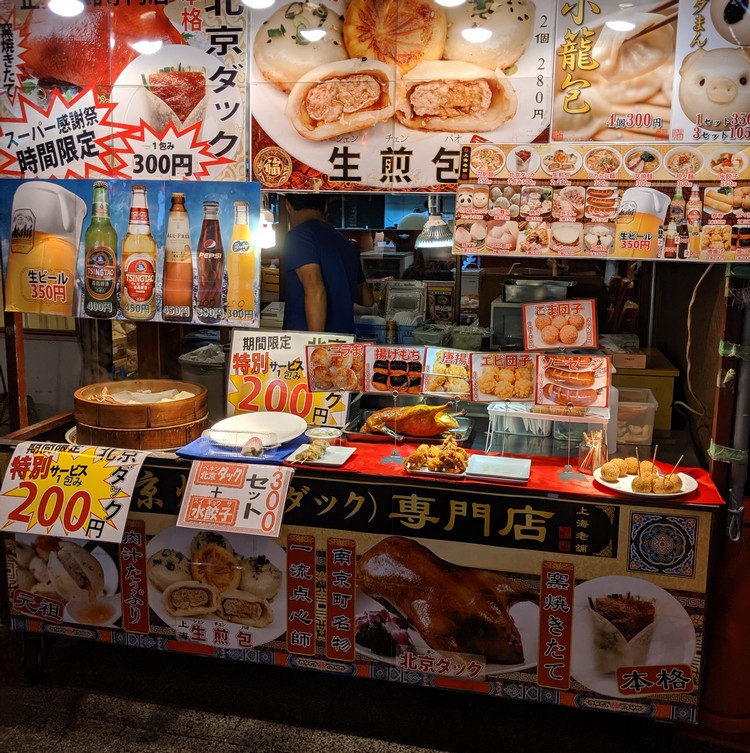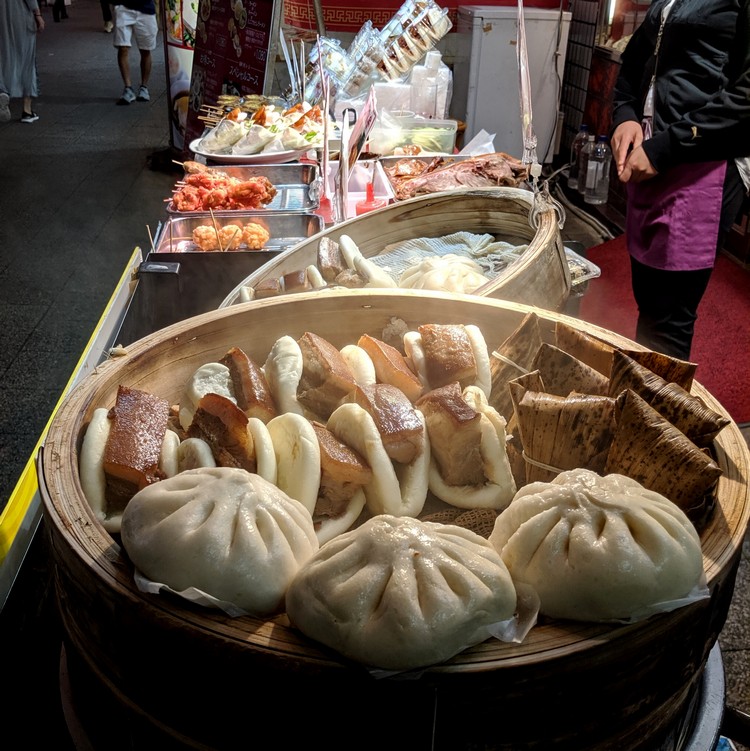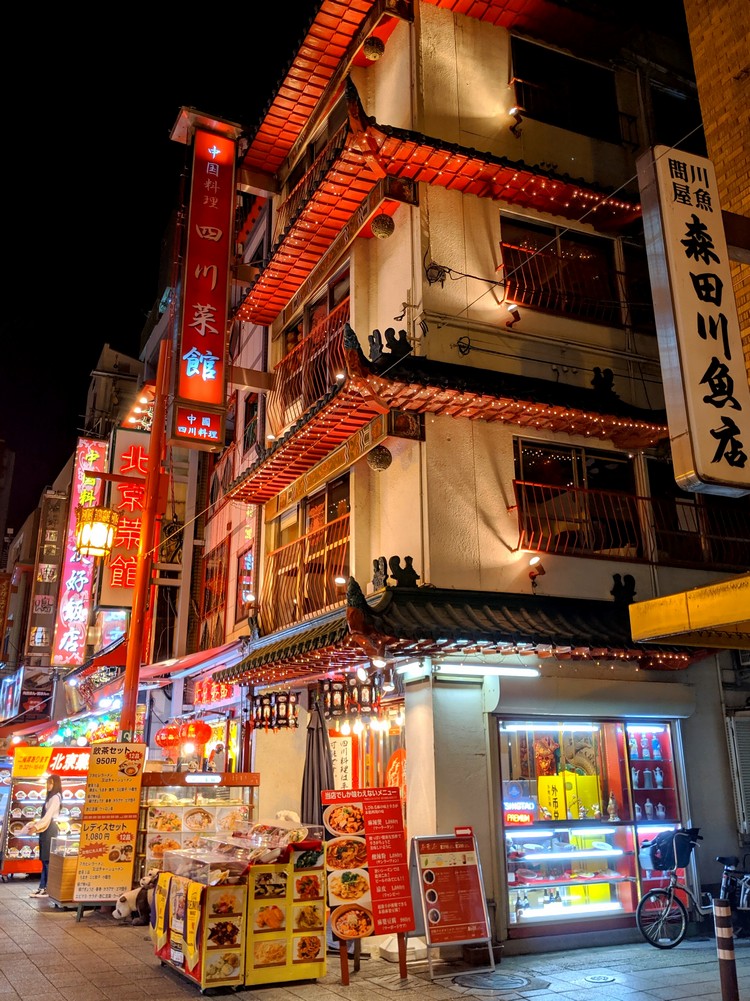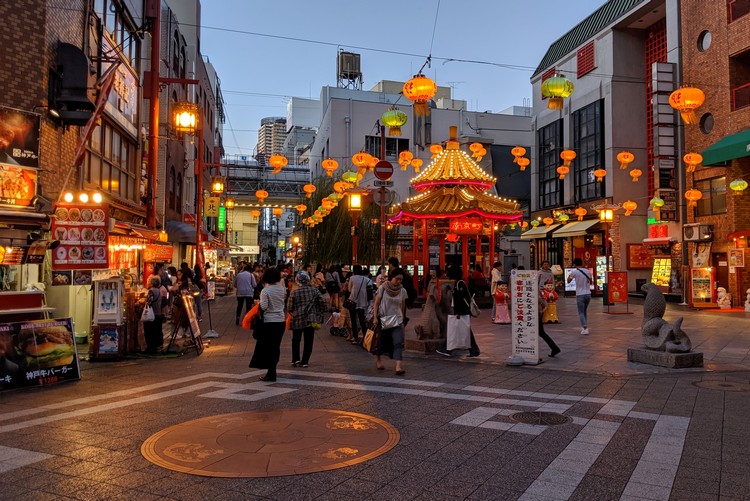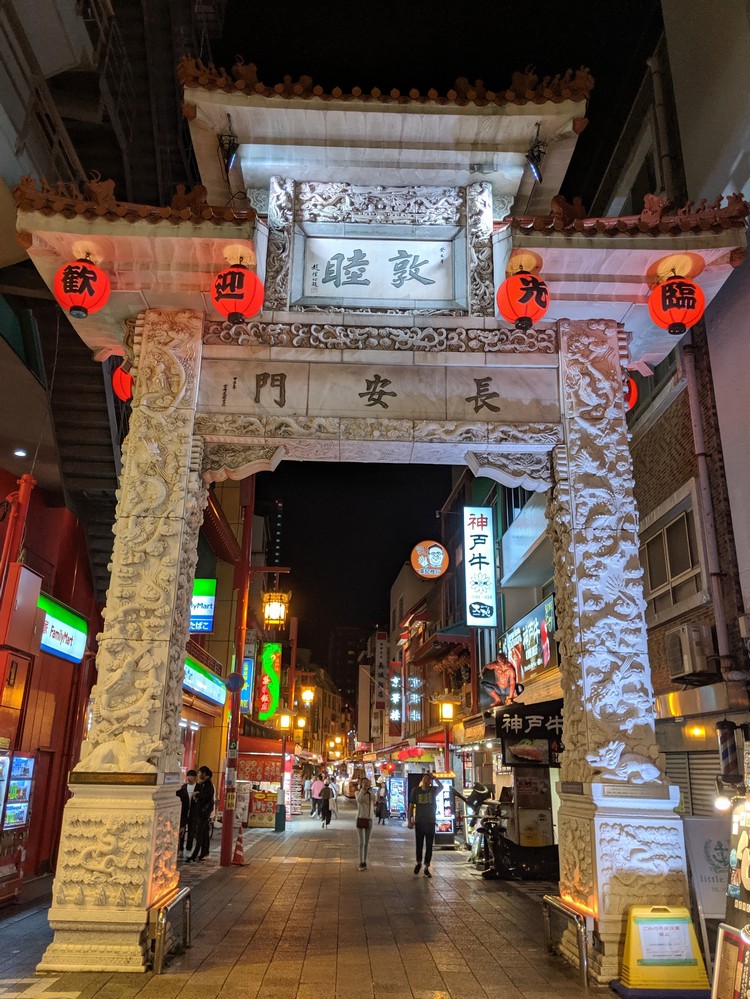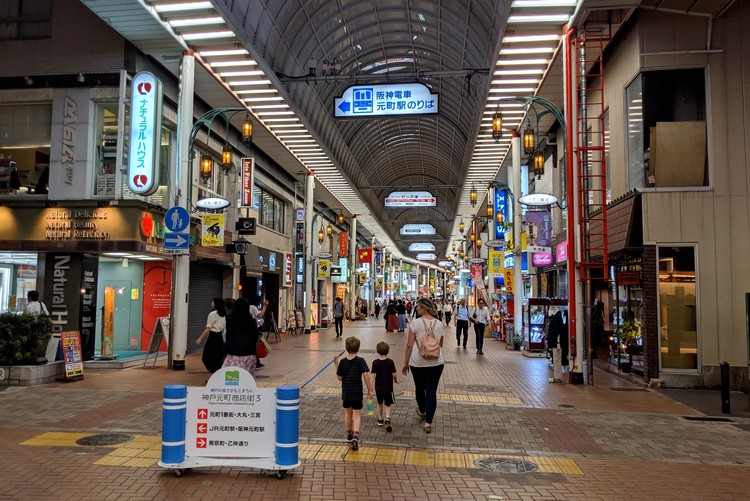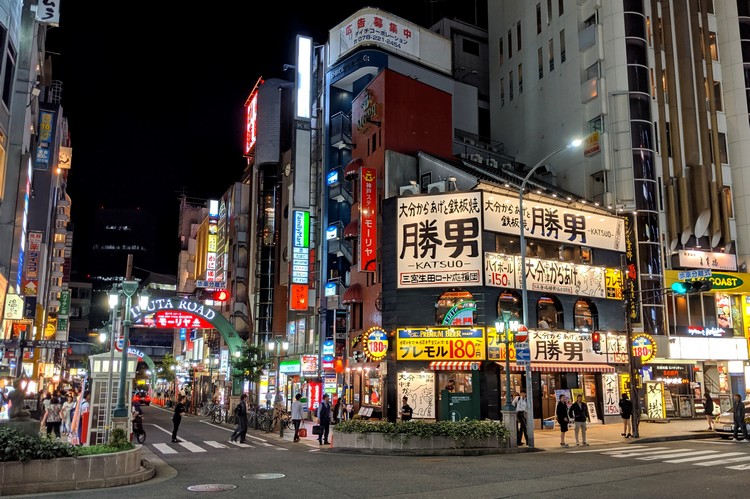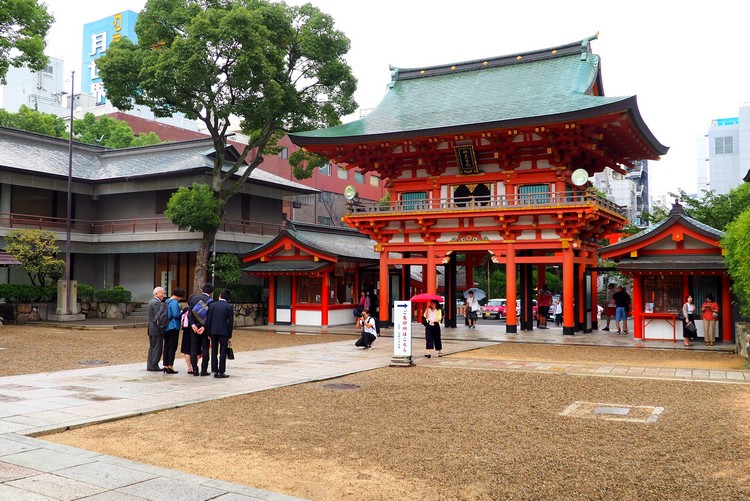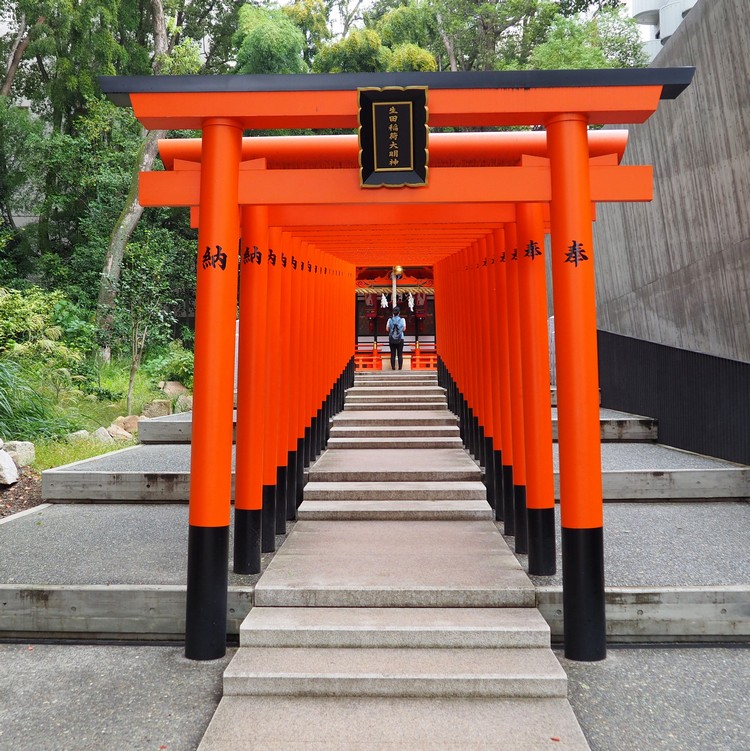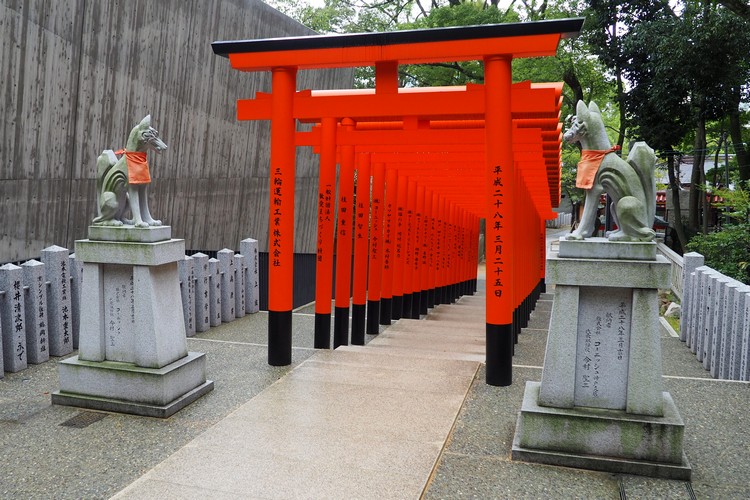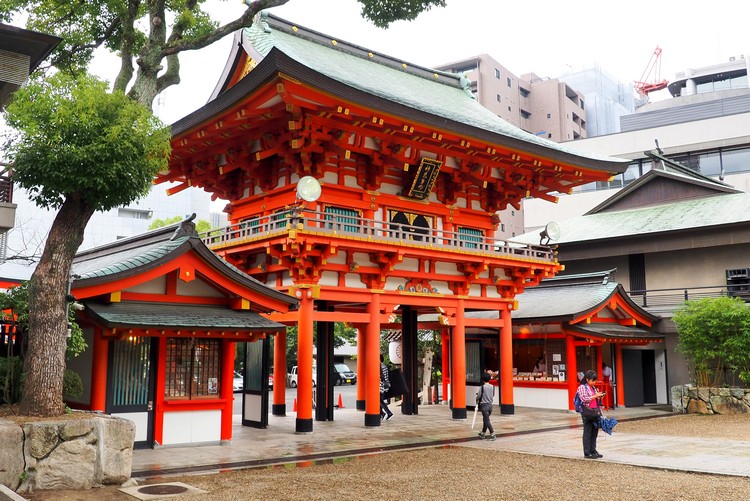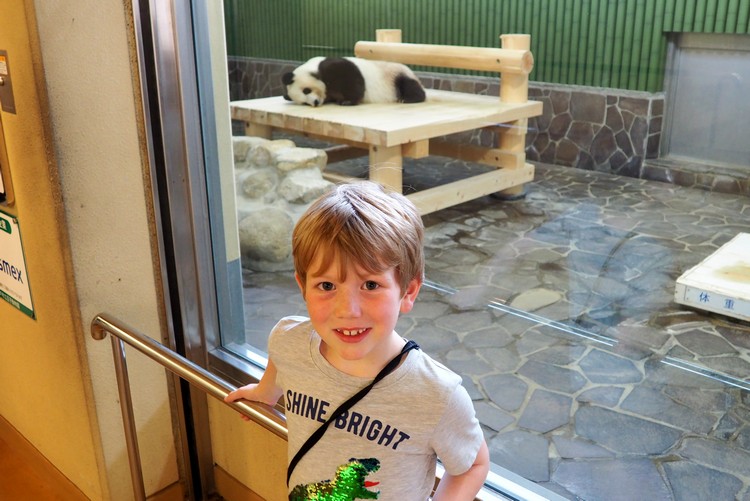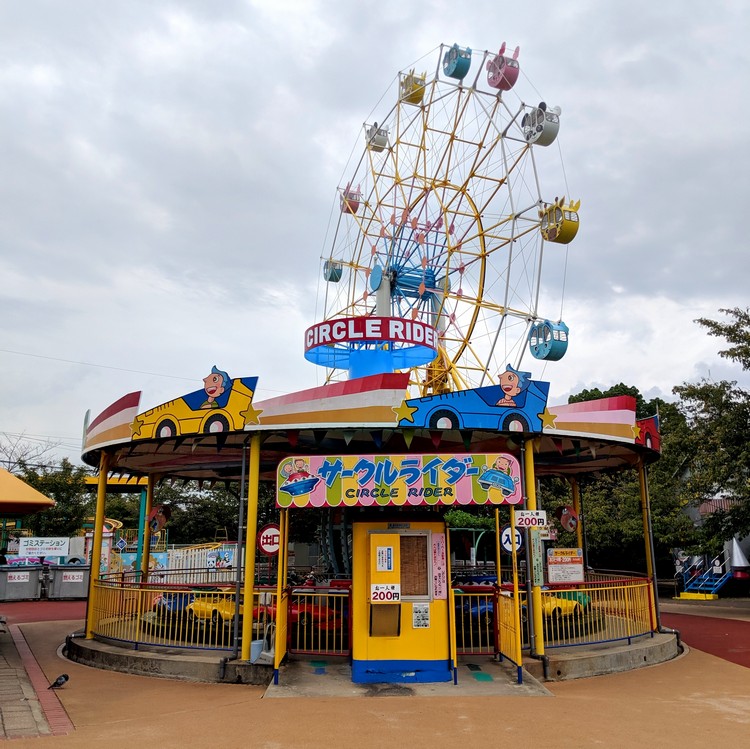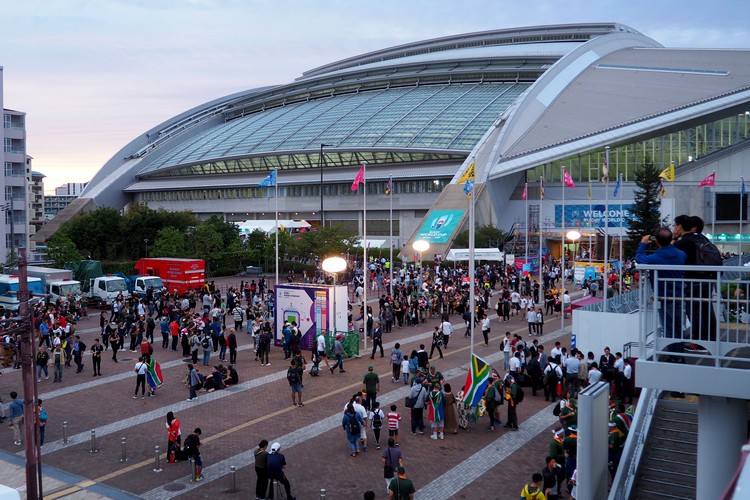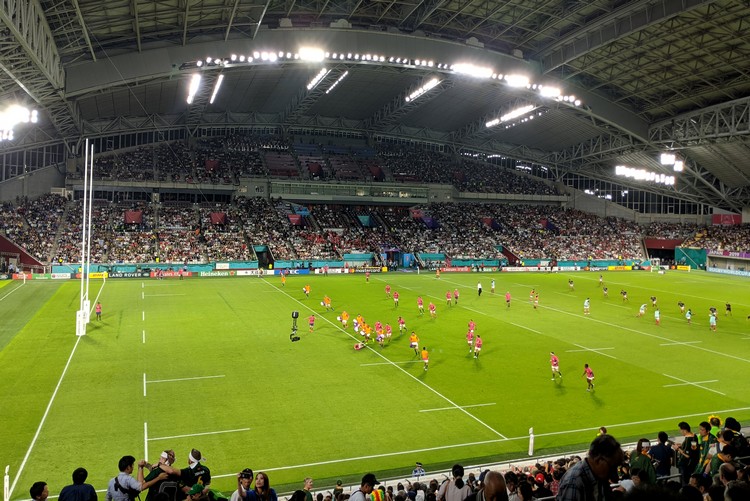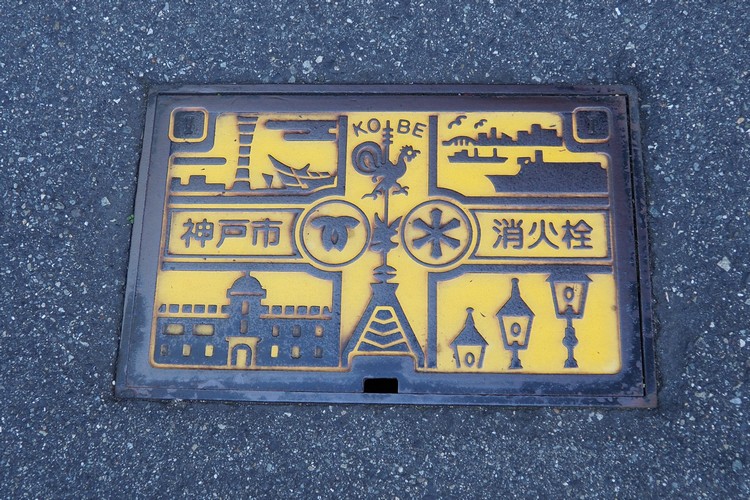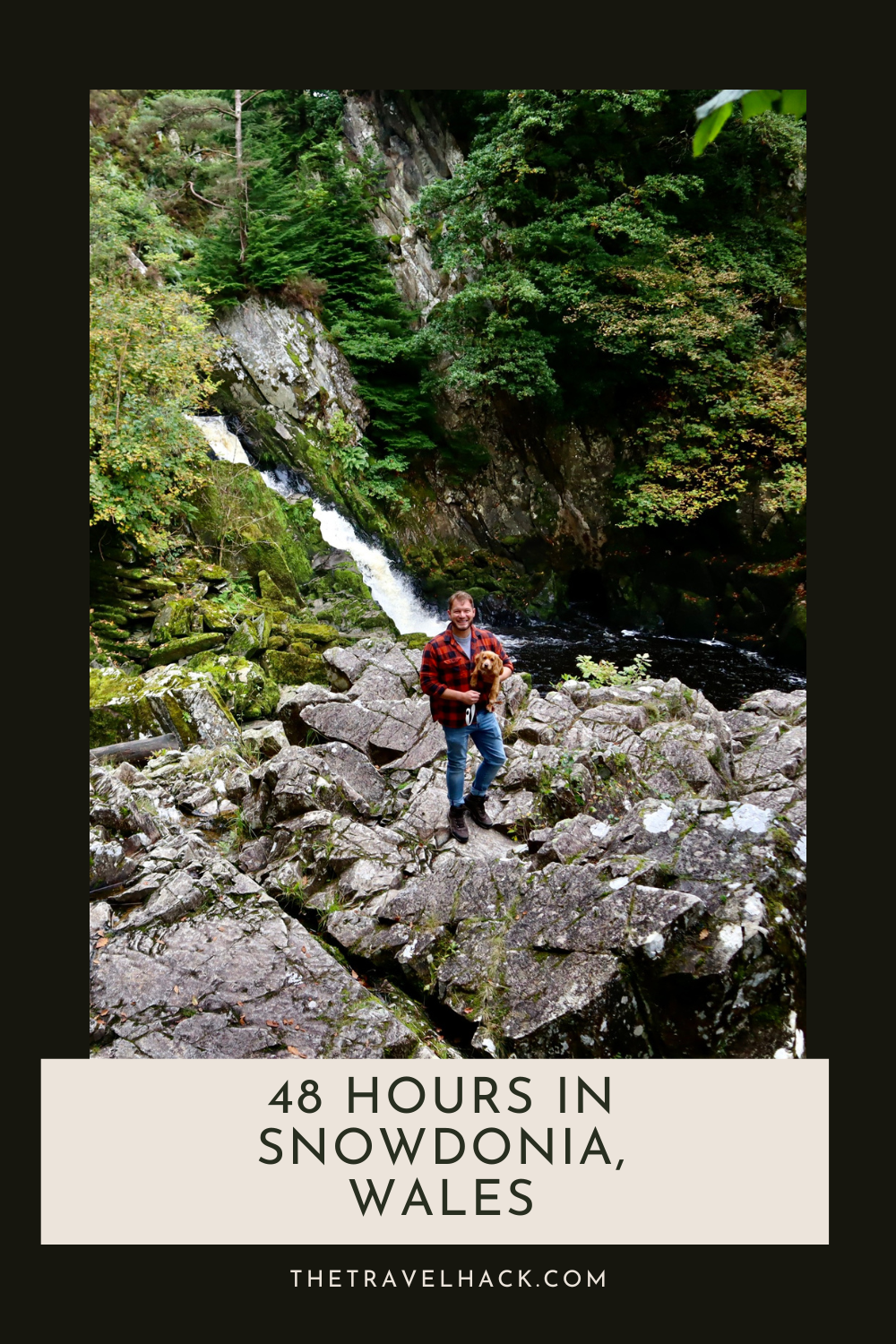Things to do in Kobe, Japan
While it may not have the prestige and quirkiness of Tokyo, or the history and culture of Kyoto, the city of Kobe deserves a spot on your Japan travel itinerary. In this Kobe travel guide, we share some of the fun things to do in Kobe, from dipping your toes in ancient hot springs to sampling the delicious wagyu beef that shares its name.
If this is your first time learning about the city of Kobe, you are not alone.
Kobe is not typically ranked high on the list of places to visit in Japan. It’s often overlooked and most certainly underrated. We hope to change that with this Kobe blog post.
Located 30 km (19 miles) west of Osaka, many visitors will travel to Kobe as a day trip from Osaka or Kyoto. If you don’t have a lot of time, this might be your best option.
When we visited Japan back in 2009, that was our approach. We made Kyoto our home base and took day trips to Kobe, Osaka, Nara and Hiroshima. The Japanese rail system is fast and efficient, so it’s easy to cover a lot of ground.
However, if you have a couple of days in Kobe, you’ll find plenty of fun and interesting things to keep you busy and entertained. This blog post highlights the things we did during our three days in Kobe.
Skip ahead using Table of Contents
Related post – 25 Japan travel tips for first timers
1. Try some delicious Kobe Beef
First on the list of things to do in Kobe is to indulge in the delicacy that shares it’s name – Kobe beef.
Unless, of course, you don’t eat meat. If that’s you, skip to the next recommendation.
Kobe is famous for wagyu beef, arguably the finest cut of beef in the world, which comes from the Tajima strain of Japanese Black cattle. People travel from far and wide to taste this mouth-watering, perfectly-marbled beef.
Similar to drinking Champagne in Champagne, France or sipping port wine in Porto, Portugal, you must try Kobe Beef in Kobe. There are specific rules about what beef can be classified as true Kobe Beef and Kobe is where you’ll find the real deal.
The moment you step off the train at Kobe-Sannomiya Station you are reminded that Kobe Beef is a big deal in these parts. Signs and advertisements are scattered throughout the city promoting a variety of ways to indulge yourself, from Kobe beef teppanyaki to Kobe beef sushi.
Kobe beef is an expensive cut of meat, so your travel budget will dictate the best way to experience this celebrated Japanese cuisine. High-end steakhouses offer multi-course meals that serve a variety of cuts and styles of wagyu beef. Go ahead and splurge; you’re worth it!
Related – Beginner’s guide to eating food in Japan
Most restaurants that serve Kobe beef will have a black cow statue outside the restaurant. This is the Japanese Black, which is the breed of Japanese beef cattle known as wagyu.
Kobe beef sushi
Many ramen and sushi restaurants in Kobe will serve Kobe beef sushi. If you’re not interested in dropping big coin at a fancy Kobe beef restaurant, beef sushi is an inexpensive way to sample the goods.
A single piece of Kobe beef nigiri costs 800 Yen (approx $10.00 CAD).
Kobe Beef Ramen
There are many ways to get the tasty wagyu in your belly. The above was captured at a small ramen restaurant in Kobe that was recommended by friends.
This miso ramen dish is served with four different ways to eat Kobe beef.
Above is a photo of Kobe beef ramen Yazawa. It’s small, so you might miss it.
2. Kobe Port Tower
The most recognizable landmark in Kobe is the Kobe Port Tower. The 354 foot tower has multiple observation floors that offer 360 degree panoramic views of the city, harbor and Mount Rokko.
Kobe Port Tower is open year round. Depending on when you travel to Kobe, the best time to visit the Port Tower observation deck is just before sunset. The city sparkles at night.
Admission to the Port Tower is 700 yen for adults ($9.00 CAD) and 300 yen for children ($4.00).
More info about the Kobe Tower here.
3. Meriken Park
Meriken Park is a waterfront park located in the Kobe port area. It is home to some of Kobe’s most iconic architecture, including the Kobe Port Tower, Kobe Maritime Museum (pictured above) and Meriken Park Oriental Hotel.
The Kobe Maritime Museum is also home to Kawasaki Good Times World, a museum dedicated to the 100+ year history of Kawasaki and it’s many products, including Shinkansen trains, jet planes, helicopters and motorcycles. More info about the museum here.
You will also find the Port of Kobe Earthquake Memorial Park on the east side of Meriken Park.
The Kobe Japan earthquake, or Great Hanshin earthquake, occurred on January 17, 1995 in the southern part of Hyogo Prefecture. The earthquake killed 5,378 people, damaged or destroyed 152,000 buildings, and is said to the most expensive earthquake ever to strike an urban area [source].
4. Mosaic Ferris Wheel
If you’re visiting Kobe with kids, the Mosaic Ferris Wheel at Kobe Harborland is a fun activity. Similar to the observation deck at the Port Tower, the Mosaic Big Ferris Wheel offers 360 degree views of the waterfront, port, city and mountains.
The Kobe Big Ferris Wheel operates from 10:00 AM to 10:00 PM.
Each ride costs 800 yen for adults ($10.00 CAD). The air conditioned gondolas can fit up to four people.
All smiles inside the Mosaic Ferris Wheel at Harborland.
Panoramic views of the Port Tower and Mt. Rokko from inside the Mosaic Ferris Wheel.
Mosaic Ferris Wheel has over 120,000 LEDs that put on a show at night.
5. Kobe Harborland
Kobe Harborland is a large shopping complex located on the waterfront across from the port, facing Kobe Port Tower and Meriken Park Oriental Hotel.
Harborland has become one of Kobe’s top tourist attractions with over 200 stores, restaurants, museums and entertainment.
If you only have one night in Kobe, we recommend you visit Kobe Harborland and dine at one of the waterfront restaurants at Mosaic. The Fisherman’s Market at Kobe Mosaic is quite popular.
The Mosaic boardwalk is arguably the best place in Kobe to watch the sunset.
Kobe Harborland is home to Anpanman Theme park and Kobe Anpanman Children’s Museum, located behind the Mosaic Ferris Wheel. It also has video arcades and games room, so you’re kids will have plenty to keep them entertained.
While you’re in the neighborhood, take a stroll down Kobe Gaslight Street and check out the 9th-century red brick warehouses called Renga Soko.
We ate dinner at the conveyor belt sushi restaurant at Kobe Harborland (also called rotation sushi, sushi train and kaiten sushi).
It’s a fun and easy way to sample a variety of sushi. Not only does the sushi come out quickly, you can actually see the items as they pass your table. This is ideal for first timers who are nervous about trying sushi and raw fish for the first time.
Related – Your travel guide to eating Japanese Food in Japan
6. Kobe Bay Cruise
Get a different perspective of this bustling port city by taking a Kobe Bay Cruise. Cruises sail around the bay and last about 40 minutes.
The boat is docked at Meriken Park beside the red Port Tower. See photo above. You can purchase tickets directly at the dock. Boats depart every hour, so you have options.
Another option is the Kobe Concerto cruise.
The ship is docked in front of Harbourland (see photo below) and offers a dining experience while cruising around the bay. You can join a lunch cruise that typically departs at 12:00 noon, tea cruise that departs at 2:30 PM, twilight cruise that departs at 5:15 PM and a night cruise that departs at 7:30 PM.
Read more Japan blog posts.
7. Rokko Cable Car
The Rokko Cable Car is a Japanese funicular that transports guests to the top of Mt. Rokko. The cable car opened in 1932 and is one of the top Kobe tourist attractions.
It takes 10 minutes to get from the Rokko Cable Shita station, located at the base of the mountain, to Rokko Sanjo station at the top of the mountain. The elevation gain is approximately 500 metres.
It’s best to get the Rokkosan Tourist pass for 1200 yen. This pass includes bus fare to get to Rokko Cable Shita station, the cable car ride, and the bus to the Mount Rokko Tourism Area. More info here.
Outside the Rokko Cable Car station. This is at the base of Mount Rokko.
8. Rokko Garden Terrace
Rokko Garden Terrace, pictured above, is the perfect place to get panoramic views of the city, ocean and mountains.
It’s a tourist complex with viewing platforms, an observation tower, multiple restaurants and small retail shops that sell souvenirs, ice cream, drinks and snacks.
Rokkosan Genghis Khan Palace
For a unique lunch, visit the Rokkosan Genghis Khan Palace. Grill fresh meats, seafood and vegetables on a hot cast iron plate that sits on your dining table.
It’s a fun dining experience for everyone.
Related – Quick Guide to Japanese Food for Tourists
Map of things to do on Mount Rokko in Kobe Japan.
You can easily spend a full day visiting the small tourist attractions on Mount Rokko. It has a botanical garden, forest adventure park with zipline and treetop obstacle course, the music box museum, small golf course and the Rokko Garden Terrace.
The beehive structure in the above photo is the Rokko Shidare Observatory.
The best views of Kobe and Hyogo Prefecture are found at the top of Mount Rokko.
9. Rokko-Arima Ropeway
The Rokko-Arima Ropeway is an aerial tramway that travels 2.8 kilometres (1.7 miles) from Rokko Sancho station to Arima Onsen. You can walk from the Rokko Tourist Area to the Rokko Sancho station, so it’s an easy addition to your Kobe day trip.
The one way trip from Mount Rokko to Arima Onsen takes 12 minutes and costs 1030 yen ($13.00 CAD). Round trip tickets cost 1850 yen ($23.00).
You might also want to visit the Maya Ropeway and Shin-Kobe Ropeway during your visit to Kobe.
Related – 25 Japan travel tips for first timers
Rokko Sancho station at the top of the Rokko-Arima Ropeway.
Inside the aerial tram descending from Mount Rokko to Arima Onsen.
Lush mountain landscapes from the Rokko-Arima ropeway.
Do you follow us on Instagram? If not, come say hello!
10. Arima Onsen
One of the most popular Kobe attractions is Arima Onsen. We’re told it’s Japan’s oldest and most famous hot spring town.
Wandering the narrow streets of Arima Onsen offers a glimpse into Japan’s ancient past. It’s said that emperors and samurai would visit Arima Onsen to soak in its healing hot springs.
Arima Onsen is accessible by taking the Rokko Cable Car and Rokko-Arima Ropeway, which makes for a fun day trip from Kobe. Plan for a full day if you want to include time on Mount Rokko. Or stay overnight at a traditional Japanese ryokan.
There are only two public bath houses in Arima Onsen. Some ryokan hotels will open their private baths to visitors during the day. Admission ranges between 500 and 2500 yen ($6.00 CAD to $30.00 CAD).
See a list of hot spring baths in Arima Onsen here.
If you’re travelling with kids, it’s important to know that there are special rules for bathing at Japanese onsen. We were not allowed to bathe as a family at the public bath house at Arima Onsen (men and women cannot bath together, even with kids). Keep this in mind and plan accordingly.
If you’re not keen to spend time at a bath house or ryokan, you can soak your feet at Taiko no Ashiyu. It’s a free public foot bath in Arima Onsen.
It is located outside Kin no Yu (Arima golden Hot-spring public spa).
The water is kept at 42.3 degree Celsius, so it’s hot! I don’t think any of us lasted longer than one minute.
The town of Arima Onsen has small retail shops, restaurants and shrines.
Related – 50 Photos of Kyoto that will inspire you to visit
11. Nankin-machi – Kobe Chinatown
More than 100 restaurants and shops make up Kobe’s Chinatown, also known as Nankin-machi.
It’s one of Japan’s largest Chinatowns, although it only covers a geographical area of approximately 200 x 100 meters.
The lively streets of Nankinmachi see a constant flow of people, especially in the evening. This is a great place to sample a variety of street food in Kobe, including steamed dumplings, pork buns, Peking duck wraps, noodle soups and deep fried croquettes.
Kobe Chinatown has several street food vendors with small bites for sale.
Tasty steamed pork buns for sale in Chinatown.
Chinatown is a fun place to experience Kobe at night.
The iconic gazebo in Nankinmachi Square in Kobe Chinatown.
Choanmon Gate welcomes visitors to Kobe Chinatown.
Above is the ornate Seian-mon Gate in Nankin-machi.
12. Motomachi Shopping Street
One of the things we love about Japan is its pedestrian only shopping streets. Motomachi Shopping Street is a shopping district in central Kobe with hundreds of retail shops and restaurants.
The popular street is located in the center of Kobe near some of its top tourist attractions, such as Nankinmachi (Kobe Chinatown), Kobe City Museum, Meriken Park and Harborland.
It stretches between Motomachi Station and Kobe Station, so it’s easily accessible from anywhere in the city.
13. Ikuta Shrine
The most famous temple in Kobe is Ikuta Shrine, said to be one of the oldest shrines in Japan.
Ikuta Shrine is centrally located and easy to access by foot from Sannomiya Station.
There are many temples, shrines and tori gates within the grounds at Ikuta Shrine.
Plan to spend at least one hour exploring the this beautiful shrine. The temple is free to enter.
Above is the main entrance gate to Ikuta Shrine.
Row of bright orange torii gates inside Ikuta Shrine.
The temples and shrines in Japan are remarkable and worth visiting, even if you’re not religious.
14. Kobe Oji Zoo
The Kobe Oji Zoo is conveniently located a few train stations from central Kobe-Sannomiya Station. Admission to the zoo is only 600 yen for adults (approx $7.00 CAD) and kids are free, making it an inexpensive family activity in Kobe.
The zoo is home to over 850 animals and birds from 150 different species, including rarely seen animals like the giant panda, golden snub-nosed monkey, Amur tiger, polar bear and snow-leopard.
Learn about Oji Zoo and see a list of animals here.
The giant panda is the star attraction at Kobe Oji Zoo.
An unusual amusement park at the Kobe Zoo
The amusement park inside Kobe Zoo is interesting, to say the least. We expect a little weird and wacky from Japan. It’s what makes Japan such a fascinating country to visit, in our opinion.
As soon as we entered the amusement park we were instantly transported back in time. While the zoo has an impressive line up of animals, the park facilities appear to have been left behind.
Watch this short video from the Kobe Zoo amusement park.
Read more – The unusual amusement park at Kobe Oji Zoo
15. Rugby Match at Kobe Misaki Stadium
Even if you’re not a rugby fan, it’s fun to watch a live sporting event at Kobe Misaki Stadium.
Also known as Noevir Stadium Kobe, it has a retractable roof and capacity of 30,000 people. It’s home to the Kobelco Steelers, a rugby union Top League team. Check the team schedule prior to your visit to see if the team is playing.
The stadium is also home to Vissel Kobe, a Japanese professional football club in the J1 League. It’s the top tier of football in Japan. Kobe Misaki Stadium hosted matches at the 2002 FIFA World Cup.
We were fortunate to watch a live Rugby World Cup match here. The 2019 Rugby World Cup in Japan is the first Rugby World Cup to be held in Asia.
Read about our experience at the Rugby World Cup in Japan.
Inside Kobe Misaki Stadium at the Japan Rugby World Cup.
Other things to do in Kobe
During our first trip to Kobe, before having kids, we visited these attractions that are also worth visiting.
- Nada Sake District – sample sake at a variety of Sake Breweries in Kobe. More info here.
- Shin-Kobe Ropeway – located beside the Shin-Kobe train station. If you’re taking a day trip from to Kobe to Osaka or Kyoto, you will likely arrive at this train station. We recommend you take this cable instead of the Rokko Cablecar, to maximize your time.
- Nunobiki Waterfall – if you’d rather go for a hike in the mountains, skip the Skin-Kobe Ropeway and hike to this 43 meter waterfall. The trail also passes the Miharashi Observatory, which offers nice views of the city.
- Kitano Ijinkan – also located near the Kobe Shinkansen station, this historical district is home to a number of foreign residences and mansions, known as Ijinkan. Some of them have converted into public museums. More info here.
Read more Japan blog posts here:
Have you visited Kobe? What did we miss?
Share your recommendations and travel tips below. Our readers thank you!
